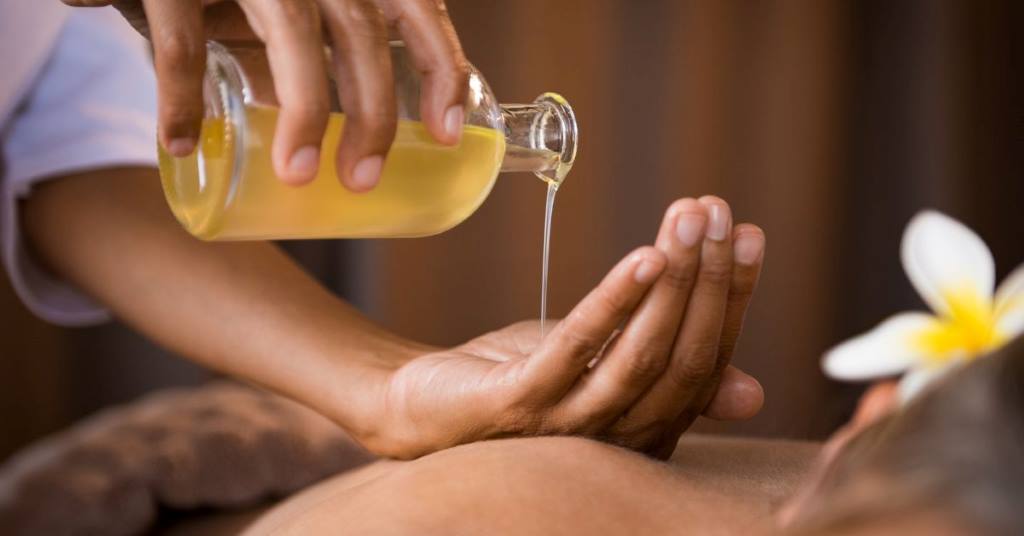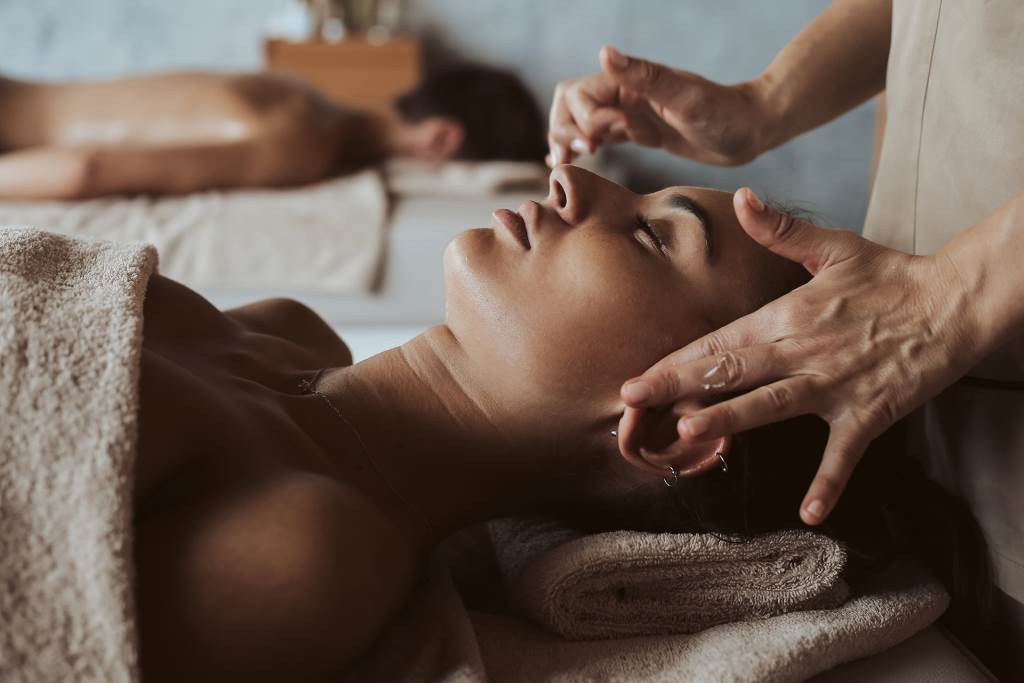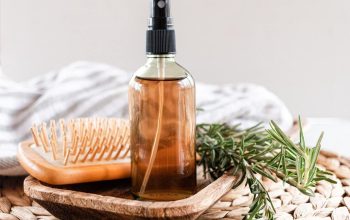Imagine walking into a spa, greeted by the soothing scent of lavender calming your nerves. Your shoulders relax, and the day’s stress melts away. Aromatherapy, the art of using essential oils to promote well-being, is a cornerstone of spa experiences. Spas harness these natural scents to reduce stress, improve mood, and create a serene escape. This article explores how spas use aromatherapy to help you unwind, offering practical insights into its benefits, methods, and science. Whether you’re a spa enthusiast or curious about stress relief, you’ll discover how aromatherapy transforms relaxation. We suggest visiting the laser hair removal in midtown Manhattan.
What Is Aromatherapy?
Aromatherapy uses essential oils extracted from plants to improve physical and mental health. These oils, derived from flowers, herbs, or trees, carry potent aromas that influence emotions. Spas incorporate aromatherapy to create calming environments, targeting stress reduction. When you inhale these scents, they interact with your brain’s limbic system, which controls emotions and memory. This connection explains why a whiff of eucalyptus can instantly relax you. Spas carefully select oils like lavender, chamomile, or peppermint to craft personalized experiences, ensuring you leave feeling refreshed and balanced. Visit the best anti aging facial in midtown Manhattan to get the best care for anti aging.
Why Stress Reduction Matters
Stress affects everyone. It tightens muscles, clouds thoughts, and drains energy. Chronic stress can lead to anxiety, insomnia, and even physical health issues. Spas understand this and use aromatherapy as a natural remedy. The scents trigger relaxation responses, lowering cortisol levels and promoting calmness. By addressing stress, spas help clients improve mental clarity and emotional resilience. Aromatherapy offers a gentle, non-invasive way to combat stress, making it a popular choice for those seeking holistic wellness. Spas create spaces where you can escape daily pressures and reconnect with peace.
How Spas Integrate Aromatherapy
Spas weave aromatherapy into every aspect of the experience. From the moment you enter, calming scents set the tone. They use various methods to deliver these benefits effectively. Here’s how spas incorporate aromatherapy for stress reduction:
- Diffusers: Spas place ultrasonic or nebulizing diffusers in treatment rooms to disperse essential oils into the air. Lavender or ylang-ylang mists create a tranquil atmosphere.
- Massage Oils: Therapists blend essential oils with carrier oils for massages. Oils like chamomile soothe muscles and calm the mind during sessions.
- Inhalation Therapy: Some spas offer steam rooms or inhalation stations where clients breathe in eucalyptus or peppermint to clear stress and tension.
- Scented Products: Lotions, candles, and bath salts infused with essential oils enhance the experience, extending relaxation beyond the spa.
- Custom Blends: Spas create personalized oil blends based on client needs, targeting specific stress symptoms like anxiety or fatigue.
These methods ensure aromatherapy is seamless, enhancing every moment of your spa visit.
The Science Behind Aromatherapy and Stress Relief
Aromatherapy isn’t just about pleasant smells; it’s rooted in science. When you inhale essential oils, their molecules stimulate the olfactory system, sending signals to the brain’s limbic system. This area regulates emotions, heart rate, and stress responses. Studies show lavender reduces anxiety by lowering cortisol, while peppermint boosts alertness. A 2016 study in the Journal of Alternative and Complementary Medicine found that inhaling rose oil decreased stress in 80% of participants. Spas leverage this science to craft experiences that calm both body and mind, making aromatherapy a powerful tool for relaxation.
Popular Essential Oils for Stress Reduction
Spas rely on specific essential oils known for their calming properties. Each oil offers unique benefits, targeting different aspects of stress. Here are the most common oils used in spas:
- Lavender: Known for its soothing scent, lavender reduces anxiety and promotes sleep. Spas use it in massages and diffusers.
- Chamomile: This gentle oil calms nerves and eases tension, perfect for sensitive clients.
- Ylang-Ylang: Its sweet, floral aroma balances emotions and lowers blood pressure.
- Eucalyptus: Clears the mind and relieves mental fatigue, often used in steam rooms.
- Peppermint: Uplifts mood and boosts focus, ideal for combating stress-related exhaustion.
Spas choose oils based on your needs, ensuring a tailored relaxation experience.
How Spas Personalize Aromatherapy
Every client is unique, and spas know this. They customize aromatherapy to match your stress levels, preferences, and health conditions. During consultations, therapists ask about your stress triggers and desired outcomes. For example, if you struggle with insomnia, they might suggest lavender or cedarwood. For mental fog, they could recommend rosemary. Spas also consider allergies or sensitivities, avoiding oils that might irritate. By blending oils and adjusting application methods, they create a bespoke experience. This personalization makes aromatherapy more effective, helping you feel understood and cared for.
Aromatherapy in Spa Treatments
Spas integrate aromatherapy into various treatments to maximize stress relief. Here’s how it enhances popular services:
- Massage Therapy: Essential oils like lavender or chamomile are mixed with carrier oils to relax muscles and mind during Swedish or deep tissue massages.
- Facials: Oils like rose or frankincense are used in facial treatments to soothe skin and reduce stress-related breakouts.
- Hydrotherapy: Scented bath salts or oils are added to hot tubs or soaking pools, creating a calming soak.
- Saunas and Steam Rooms: Eucalyptus or peppermint oils are diffused to clear airways and promote relaxation.
- Meditation Sessions: Spas use calming scents like sandalwood to deepen mindfulness practices.
Each treatment amplifies aromatherapy’s stress-relieving effects, leaving you refreshed.
Benefits of Aromatherapy for Stress
Aromatherapy offers multiple benefits beyond relaxation. Spas use it to address various stress-related issues:
- Reduces Anxiety: Scents like lavender lower cortisol, easing anxious thoughts.
- Improves Sleep: Oils like chamomile promote restful sleep, combating stress-induced insomnia.
- Boosts Mood: Uplifting scents like citrus or peppermint energize and lift spirits.
- Relieves Physical Tension: Aromatherapy massages relax tight muscles caused by stress.
- Enhances Mental Clarity: Oils like rosemary improve focus, countering stress-related brain fog.
These benefits make aromatherapy a versatile tool for holistic stress management in spas.
Choosing the Right Spa for Aromatherapy
Not all spas offer the same aromatherapy experience. To find one that maximizes stress relief, consider these tips:
- Check Credentials: Ensure therapists are trained in aromatherapy and understand essential oil safety.
- Read Reviews: Look for client feedback on relaxation and scent experiences.
- Ask About Oils: Confirm the spa uses high-quality, pure essential oils, not synthetic fragrances.
- Inquire About Customization: Choose spas that tailor treatments to your needs.
- Visit the Space: A clean, calming environment enhances the aromatherapy experience.
A reputable spa ensures safe, effective aromatherapy, helping you achieve deep relaxation.
At-Home Aromatherapy Tips
You can recreate spa-like aromatherapy at home for stress relief. Here’s how:
- Use a Diffuser: Add 5–10 drops of lavender or chamomile to a diffuser for 30 minutes.
- Create a Bath Soak: Mix 5 drops of ylang-ylang with Epsom salts for a relaxing bath.
- Apply Topically: Blend 2–3 drops of essential oil with a carrier oil (like coconut) for a DIY massage.
- Inhale Directly: Place a drop of peppermint on a tissue and inhale deeply for quick relief.
- Set the Mood: Light a scented candle or use a pillow spray with calming oils.
Always use high-quality oils and follow safety guidelines to avoid irritation.
Safety Considerations for Aromatherapy
While aromatherapy is generally safe, spas prioritize client safety. They dilute essential oils to prevent skin irritation. Therapists avoid using certain oils, like citrus, before sun exposure due to photosensitivity. Pregnant clients or those with medical conditions receive tailored blends to avoid adverse reactions. Spas also ensure proper ventilation to prevent overwhelming scents. At home, follow similar precautions: dilute oils, avoid ingesting them, and consult a doctor if you have health concerns. Safe use ensures aromatherapy remains a relaxing, stress-relieving practice.
The Role of Ambiance in Aromatherapy
Aromatherapy’s effectiveness depends on the spa’s ambiance. Dim lighting, soft music, and comfortable surroundings amplify the calming effects of essential oils. Spas design treatment rooms to feel like sanctuaries, free from distractions. The scent of lavender pairs perfectly with a quiet, cozy space, deepening relaxation. Some spas use nature-inspired decor, like plants or water features, to enhance the experience. This holistic approach ensures aromatherapy works in harmony with the environment, creating a complete stress-relieving escape.
Combining Aromatherapy with Other Spa Services
Spas often pair aromatherapy with other treatments for maximum stress relief. For example, a massage with lavender oil followed by a meditation session with sandalwood creates a multi-sensory experience. Yoga classes with diffused eucalyptus enhance breathing and relaxation. Some spas offer aromatherapy-infused facials alongside scalp massages to target tension. These combinations address stress from multiple angles, leaving you feeling balanced and renewed. By integrating aromatherapy with complementary services, spas provide a comprehensive approach to wellness.
How Aromatherapy Enhances Mindfulness
Mindfulness is about staying present, and aromatherapy supports this practice. Spas use scents like frankincense or cedarwood during meditation or yoga to anchor your focus. Inhaling these oils helps you stay grounded, reducing racing thoughts. For example, a spa might guide you through a breathing exercise while diffusing chamomile, encouraging deeper relaxation. This synergy between aromatherapy and mindfulness helps you let go of stress and reconnect with the moment. Spas create spaces where you can practice mindfulness effortlessly, amplifying stress relief.
The Future of Aromatherapy in Spas
Aromatherapy continues to evolve in the spa industry. New technologies, like smart diffusers, allow precise scent control. Spas experiment with rare oils, such as neroli or vetiver, for unique experiences. Sustainability is also key, with spas sourcing eco-friendly, organic oils. Some incorporate virtual reality with aromatherapy for immersive relaxation. As research grows, spas will likely offer more data-backed treatments, blending science and tradition. These advancements ensure aromatherapy remains a vital tool for stress reduction, keeping spa experiences fresh and effective.
Conclusion
Aromatherapy is a powerful tool spas use to reduce stress and promote well-being. By leveraging essential oils like lavender, chamomile, and eucalyptus, spas create calming, personalized experiences. From massages to meditation, aromatherapy enhances every treatment, helping you relax deeply. Its science-backed benefits, like lowering cortisol and improving mood, make it a go-to for stress relief. Whether at a spa or home, aromatherapy offers a natural way to unwind. Visit a reputable spa today to experience the transformative power of aromatherapy and take the first step toward a calmer you.
FAQs
How does aromatherapy reduce stress?
Aromatherapy uses essential oils to stimulate the brain’s limbic system, lowering cortisol and promoting relaxation.
Which essential oils are best for stress relief?
Lavender, chamomile, ylang-ylang, eucalyptus, and peppermint are top choices for calming stress.
Is aromatherapy safe for everyone?
Most people can use aromatherapy safely, but pregnant individuals or those with allergies should consult a doctor.
Can I use aromatherapy at home?
Yes, use diffusers, bath soaks, or diluted oils for safe, spa-like stress relief at home.
How do spas choose essential oils?
Spas select oils based on client needs, preferences, and health conditions for personalized relaxation. Finally, we recommended the best facials in midtown Manhattan and the best manicure in midtown Manhattan to know more details.








